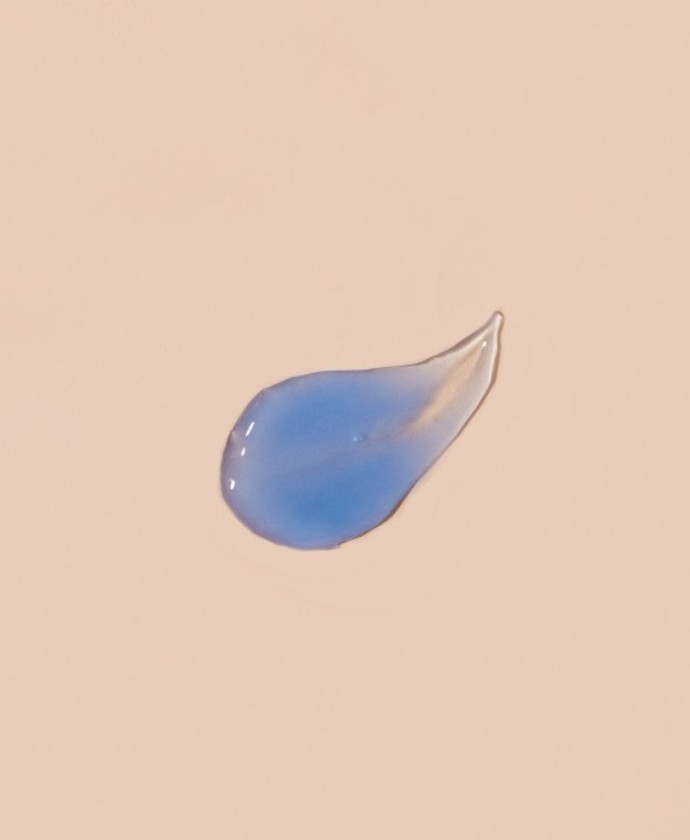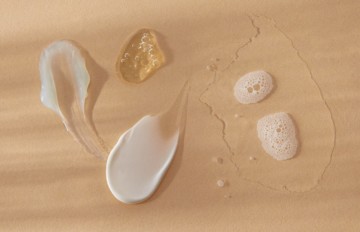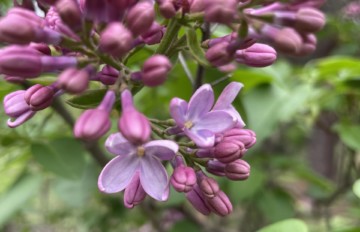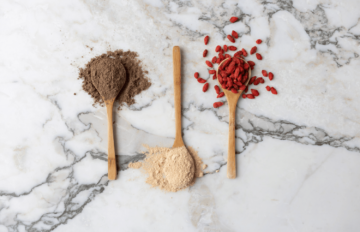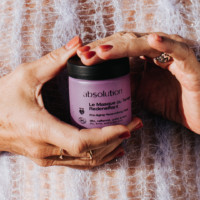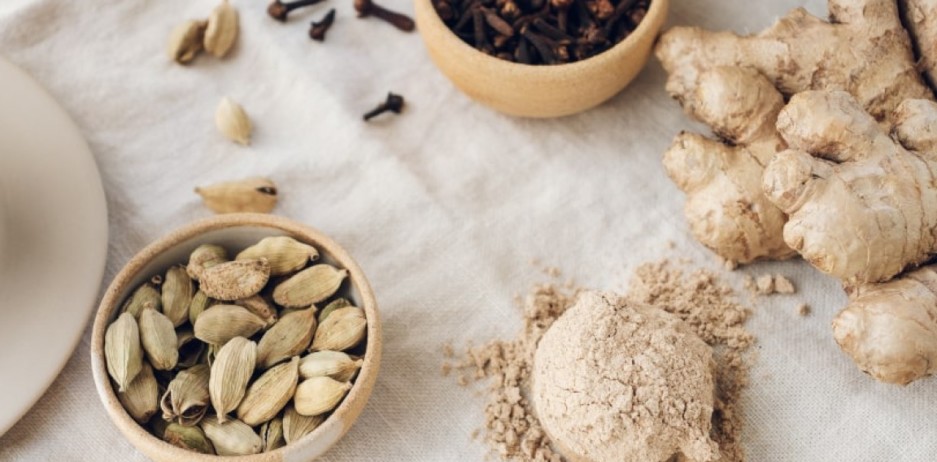
Astragalus, your skin’s best friend in summer! By Eva Gaillot @thefrenchcoconut
If you have been following my articles for Beauty Therapy, you may know that I am highly passionate about adaptogens. Today for the launch of Le Masque Anti-Soif Hydratant, I’m talking about a key ingredient of this new product: Astragalus.
Astragalus is a fundamental herb of traditional Chinese medicine, that has been used for centuries. This plant is purported to support and strengthen the immune system and has many other overall health benefits, I will also explain why it is the perfect ally of our skin, especially during summer!
History
Botanical name: Astragalus Membranaceus
Location: China, Siberia, North Korea
Part used: root
Properties: adaptogen, antioxidant, antibacterial, tonic for the immune system and the heart, hepato-protective, anti-inflammatory.
Taste: slightly sweet and earthy
Astragalus is a plant from the Fabaceae family, also known as legumes (beans, lentils, peas family…).
Astragalus is a large genus of over 2,500 species of annual or perennial plants. This type of plants need a well-drained sandy soil, rather dry, even arid for some species and appreciate full sun. Depending on the species, the plant measures between 20cm to 1m high, with pinnate leaves in several leaflets and yellow, orange, white, purple or blue flowers depending on the species, appear in a cluster to give little pods shaped fruits.
Some grow in France, such as Astragalus of Montpellier (Astragalus monspessulanus), or Astragalus with liquorice leaves (Astragalus glycyphyllos); Astragalus canadensis that comes from North America… But, today we’re going to take a closer look at astragalus membranaceus, commonly used in Chinese medicine and native to China and Mongolia.
Astragalus has a long and rich history of use in Asian cultures, known in China as Huang Qi, which means “yellow energy” or “yellow leader” in reference to the color of its root and its position of prestige of the herb among Chinese medicine practitioners.
It is a primary adaptogenic herb and due to its impressive healing abilities, in Traditional Chinese Medicine (TCM) it is considered the leader of tonic herbs.
Astragalus is believed to have been used medicinally in China for at least 2,000 years, with its first appearance in the classic TCM text: Shen Nong Ben Cao Jing. This text is the basis of TCM, various plants are classified by type (herbs, trees, etc.), then classified into categories of potency: upper, middle and lower. Astragalus is in the upper, highest class and is still considered one of the 50 fundamental herbal remedies used in this practice.
Composition & benefits
Astragalus contains immune-stimulating polysaccharides – astragalans I, II and III and glucuronic acid as well as astragalosides I to VII, flavones and isoflavones.
Astragalus is rich in many valuable plant substances, especially astragaloside IV, which is found exclusively in the root of astragalus and is the subject of many scientific studies.
According to TCM, this herb will nourish and support the vital energy Qi, strengthen the body’s natural defenses, it is above all a deep immune support.
Traditionally, astragalus has been used for its antiviral action, its properties which stimulate the immune system, making it a preventive ally against viral diseases, colds and respiratory tract infections.
It is an excellent plant against post-viral fatigue, it will help the body to recover thanks to its antiviral, anti-inflammatory and adaptogenic properties. It is therefore good to use this powerful herb for prevention, if you are prone to repeated infections in winter, such as colds, coughs, and also to strengthen the immune system after the infection has passed.
Several studies show that astragalus can help significantly, strengthen the immune system, prevent fatigue from different causes, especially to strengthen after illness and in patients with chronic fatigue, lethargy and exhaustion, but also for protect from mental fatigue and for those who suffer from fear.
Astragalus works as a tonic for the lungs, especially in chronic conditions such as asthma, and is particularly effective after infection of the lungs.
In the book Adaptogens, David Winston and Steven Maimes, explain that astragalus is a broad-spectrum tonic for people who are exhausted and in need of an overall boost in the immune system. It is used for long-term strengthening of the immune system and its activity can improve resistance to colds and flu.
The immune-stimulating activity of astragalus was widely studied in China in the 1970s and 1980s. By combining the strengths of modern and traditional herbal medicine, researchers wanted to know whether astragalus would be beneficial for patients receiving chemotherapy treatments. The herb has been shown to act as a nonspecific stimulant of the immune system, actively supporting the production of white blood cells where they would normally be exceptionally low.
Astragalus has also been found to significantly alter gastrointestinal toxicity in patients undergoing chemotherapy and stimulate appetite where it would normally be almost nonexistent due to treatment. Subsequent studies in the US continued on this research by exploring astragalus as support for those whose immune systems are weakened by chemotherapy or radiation therapy, with similar positive results further suggesting that astragalus helped these patients to recover faster. This fantastic immune-stimulating effect is often mainly attributed to the polysaccharides found in astragalus, although there is reason to believe that saponins and triterpenes play an important role as well.
Given its flavonoid content, astragalus is also known to support and promote heart health and cardiovascular system. It is believed that astragalus acts as a heart protector, strengthening and improving circulation having an anticoagulant effect helping to reduce blood clotting.
Astragalus is also traditionally used for bruises, circulation problems, fluid retention and edema, but also to help heal ulcers and various wounds.
Recent research suggested that astragalus root, thanks to its richness in essential nutrients, including polysaccharides, antioxidants, is a true fountain of youth. Specific polysaccharides, astragalosides play the role of activator of telomerase, an enzyme essential for the preservation of telomeres, components of DNA. Thanks to these precious active substances that are astragalosides, astragalus has enhanced benefits since it contains the three major antioxidant vitamins: vitamins A, E and C. Astragalus, known until recent studies as a strengthening root, is also a valuable protective herb and therefore prevent premature aging and promote longevity and overall health.
Astragalus is also known to help keep the spleen, the abdominal organ that stores our blood and any excess red blood cells, to function properly. The spleen is also an important part of the immune system. (In TCM, yellow is the color associated with the spleen.).
Astragalus is an excellent source of potassium, magnesium, and selenium, essential minerals that work together for a healthy nervous system. This adaptogenic herb is frequently used in Chinese medicine to help the body protect itself from a variety of stresses, whether physical, mental or emotional.
The use of astragalus root has been shown to help prevent kidney and liver damage from viruses and heavy medications. As a kidney tonic, astragalus acts as a mild diuretic and therefore improves kidney Qi, which can also improves the body’s energy levels.
The benefits of astragalus for the skin
Astragalus root is rich in amino acids and trace elements and contains a wide variety of valuable ingredients. Various scientific studies show that astragalus and its constituents are known to have anti-inflammatory and antioxidant actions which are important for skin health.
The benefits of astragalus for the skin are numerous, including improving skin healing, reducing inflammation, increasing skin elasticity and increasing collagen production.
Astragalus will support and help our integumentary system (skin, nails, hair…). The root of the plant contains many healing constituents such as polysaccharides and astragaloids, which is why it also treats skin disorders including burns and its healing abilities are remarkable (the new Masque Anti-Soif Hydratant is recommended after prolonged exposure to the sun, to moisturize and soothe the skin).
Astragalus plays a key role in fighting inflammation by lowering nitric acid levels in our body, due to its high content of polysaccharides (including astragaloside IV, calycosin and formononetin). In addition, it controls blood flow to injured parts of the skin through metabolic regulations. These cumulatively contribute to faster healing of wounds.
Studies have revealed that astragalus root extract not only improves the skin lesions of dermatitis, but also helps in the treatment of psoriasis and will also reduce redness and irritation of the skin.
As explained earlier, astragalus has antioxidant properties, which makes it an excellent herb for healthy skin. The antioxidants present in the plant fight against harmful free radicals in the body and protect the skin from oxidative damage and prevent skin aging. In addition, the diuretic properties of astragalus help to flush these toxins out of our body and this will reflect on the skin.
Astragalus increases our vitality and can transform a dull, sagging skin into firm, glowing skin. It restores the natural balance of our skin by removing toxins, stimulating collagen production, reducing inflammation, improving blood circulation and regenerating skin cells.
Astragalus also prevents the breakdown of elastin protein, which helps improve elasticity, tone and texture of the skin, resulting in softer and more toned skin.
Modern use
Astragalus root can be found in many different forms: tincture, capsules, dried roots, powder and tea.
Astragalus is even sometimes given by injection in a hospitals in China.
Astragalus is traditionally used as a powder or as a root decoction, obtained by boiling the dried root in water for an extended period.
Powder, capsules and decoction are most often chosen form for a cure, for immune support. Astragalus is often combined with other immune tonics, such as the adaptogenic medicinal mushroom, reishi. In some texts of traditional Chinese medicine, it is suggested to combine astragalus with panax ginseng as a tonic against fatigue and loss of appetite.
In traditional Chinese medicine, tonic herbs such as astragalus should not be taken when a person has an acute infectious or immune disease or if there is a fever, as this can cause stagnation and “fuel” the disease.
For people with medical conditions, it is always best to consult your health care practitioner before using astragalus. Also it is not recommended for pregnant and lactating women.
Sources – Bibliographie :
Adaptogens – David Winston & Steven Maimes
Herbs for Healthy Aging – David Hoffmann
Super Powders – Katrine Van Wyk
Chinese Herbal Medicine: Materia Medica – Dan Bensky, Steven Clavey, Erich Stoger.
